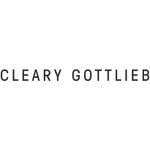The profound political events of 2016 were at least matched by those of 2017, with dealmakers left to digest political swings in Europe, progress towards Brexit in the UK, a range of unfolding events in the Middle East and Asia, and the first year of policies from a new US administration. Yet against this backdrop, global economic growth accelerated and stock markets hit record highs. Global M&A volumes remained robust, despite dropping roughly 3% by value against 2016 (although the number of deals increased). This statistic masked strong regional variations: declines of roughly 13% in North America and 34% in MEA were offset by gains of roughly 14% in Europe and 5% in APAC. An uneven pace of activity also marked the course of 2017, with final numbers being boosted by several mega-deals in December, led by the $68 billion takeover of Twenty-First Century Fox by Walt Disney and the $67.8 billion acquisition of Aetna Inc by CVS Health Corporation.
So far, so good
In spite of the turbulent geopolitical backdrop, 2018 has started promisingly, with M&A activity carrying on the momentum of the last quarter of 2017. Most corporations and private equity (PE) funds predict an acceleration of M&A activity in 2018, both in the number and size of deals. In the UK and Europe, Brexit-related fears seem to have subsided for now, with inbound investment levels remaining strong.
But to balance the optimism, macro uncertainties remain, and the potential impact of changes to tax, regulatory and political regimes are likely to be the big wild card during the course of 2018.
Taxes going down?
In the US, the Tax Cuts & Jobs Act has introduced significant changes to the US tax system. The changes may, amongst other things, impact the structuring of M&A transactions in the US, encourage non-tech M&A (through the accelerated expensing of asset acquisitions) and free up offshore cash (by allowing more efficient repatriation), which could result in an increase in overall M&A activity. The drop in the headline rate of US corporate tax might also encourage the investment of tax savings in M&A.
Protectionism going up?
Political movements since 2016 have seen some strengthening of protectionist policies. 2017 saw the value of Chinese investment into the US fall by roughly 80%, although this was impacted by a number of factors other than Cfius, including tighter monetary controls in China. In the UK, in October 2017, the government published proposals that would give it greater powers to intervene in mergers that raise national security considerations (e.g. military and advanced technology) or involve national infrastructure. A draft statutory instrument was published in March 2018, setting out further detail of how these rules might be applied.
Influence of private equity
Private equity was a significant driver of global M&A activity in 2017, jumping by 14% on a global basis against 2016. Asia led the way, reflecting a maturing PE market, with PE deal value nearly doubling. European deal values increased roughly 30%, but while the PE market in the US remained robust, growth was more muted, with deal values increasing roughly 1% against 2016. We expect the prominent role of private equity to continue in 2018. Private equity's assets under management, or "dry powder", have increased to record levels (roughly $1.8 trillion by the end of 2017), led by the fundraising efforts of the megafunds. Pension funds and sovereign wealth funds continue to rise in prominence, adding direct investment and co-investment strategies to their armouries. The continued availability of low-priced debt, increasingly on a covenant-light basis, will have a multiplying effect on private equity's deal capacity.
The private equity world will not, however, be free of challenges in 2018. With funds and strategics competing fiercely for prime assets, median PE EBITDA multiples in 2017 rose above 10x EBITDA, with half of deals being priced at closer to 11x. Average debt multiples supporting those transactions stretched towards 6x EBITDA.
But strategic buyers still lead the tables
The cost of debt has not just benefited private equity. Strategic buyers have been buoyed by a decade of low-cost debt and have increasingly targeted acquisitions for expansion. Natural advantages over private equity, including longer-term investment horizons and the ability to price in synergies, have seen strategic buyers both as competitor to private equity funds looking to buy, and friend to private equity funds looking to sell: significant transactions in 2017 included Unilever's acquisition of Carver Korea for $2.7 billion from Bain Capital Private Equity and Goldman Sachs, and Crown Castle International's $7.1 billion acquisition of LTS Group Holdings from a consortium of PE funds.
What's hot?
For private equity, we expect that continued competition will lead to continued innovation in deal structuring and investment strategy. Adding on smaller, complementary businesses to existing platform companies, as part of buy-and-build strategies, should allow PE funds to build companies of scale at lower multiplies.
|
|
The strengthening cash positions of corporates might see an increase in activism if cash is not deployed quickly enough |
|
|
Another strong trend in 2017 was the rise of public-to-private (P2P) buyouts, which doubled in number against 2016, as private market valuations increased towards public market levels. We expect to see P2P activity remain strong in 2018. We do not, however, expect that this trend will be all one-way, as 2017 also saw a slow return of the IPO markets, with PE-sponsored IPOs making a particular comeback.
As to sectors, the acquisition of technology, with its increasingly disruptive implications for a range of industries, is now a leading driver of M&A deal-making. The acquisition of tech companies by non-tech companies, and vice versa (so-called technology convergence), is also likely to remain a feature of the market. Pharmaceutical and healthcare companies are also likely to remain popular, although strong cash positions are likely to make them buyers as well as sellers. In January, healthcare deals totalling more than $38 billion were announced, representing the best start in several years. Energy, mining and utilities had a strong 2017, and this looks likely to be the case in 2018 as well.
Shareholder activism is another phenomenon that we expect will remain relevant to M&A activity in 2018, having spread from the US to Europe and Asia. The strengthening cash positions of corporates might see an increase in activism if cash is not deployed quickly enough.
And finally, a nod to social impact investing. While early initiatives focused on adopting environmental, social and governance policies, recent years have seen asset managers successfully raise funds with specific impact investment mandates, demanding tangible social impact as well as competitive investment returns. In parallel with the rise of direct impact in the private M&A world, we have also seen impact investors (or pooled funds of investors) invest in some of the world's largest traded companies for the purpose of using the investment position to drive change, in some cases deploying techniques borrowed from the playbooks of traditional activist investors.
About the author |
||

|
|
Simon Jay Partner, Cleary Gottlieb Steen & Hamilton London, UK T: + 44 20 7614 2316 F: + 44 20 7600 1698 Simon Jay advises on all types of mergers and acquisitions, as well as joint-ventures and restructurings. He has represented both corporates and private equity funds on a broad range of public and private M&A transactions, often involving cross-border issues. Jay is recognized as a leading M&A lawyer by Chambers Global, Chambers Europe, Chambers UK, the Legal 500 UK and IFLR1000. His experience includes advising Fidessa in the on-going £1.4 billion recommended takeover offer from Temenos; Google in its tender offer for all the shares of Global IP Solutions (GIPS) Holding AB; TPG in its acquisition of Prezzo; Coca-Cola on the combination of the businesses to form a new Western European bottler, Coca-Cola European Partners; Raine Group as financial adviser to SoftBank in its acquisition of ARM Holdings; Sony in its acquisition of Ericsson's 50% stake in Sony Ericsson Mobile Communications; Warburg Pincus and General Atlantic in the joint acquisition from Banco Santander of a 50% stake in Santander Asset Management and the subsequent divestment; Santander Asset Management in its proposed merger with Unicredit's Pioneer Investments; and Bank of America Merrill Lynch in the sale of its non-US wealth management business to Julius Baer Group. |
About the author |
||

|
|
Michael Preston Partner, Cleary Gottlieb Steen & Hamilton London, UK T: + 44 20 7614 2255 F: + 44 20 7600 1698 Michael J Preston advises a broad range of private equity and corporate clients on mergers and acquisitions, co-investments, joint-ventures and other commercial transactions. He has experience across a range of business sectors, with particular experience in financial services, healthcare, natural resources and technology, and he has worked extensively in the emerging markets. Michael also has significant experience advising clients on issues related to investment funds, acquisition finance and alternative investment structures. Preston joined the firm in 2005 and became a partner in 2011. From 2011 to 2015, he was resident in the Hong Kong office. Preston is recognised as a leading M&A lawyer by Chambers Global, Chambers Asia, Asian Lawyer and IFLR1000. His experience includes advising TPG in a range of transactions including its acquisition of DTZ, Cushman & Wakefield and Cassidy Turley, its equity investment in China International Capital Corporation and its investment in Moroccan schools operator Ecoles Yassamine; Hillhouse in a range of investments in Europe and Asia; Alnair Capital Holdings JSC in the acquisition of an approximately 25% stake in JSC Kazkommertsbank; Mittal Investments in the acquisition of an interest in Ophir Energy; and African Minerals in a $1.5 billion investment by Shandong Iron & Steel Group. |


